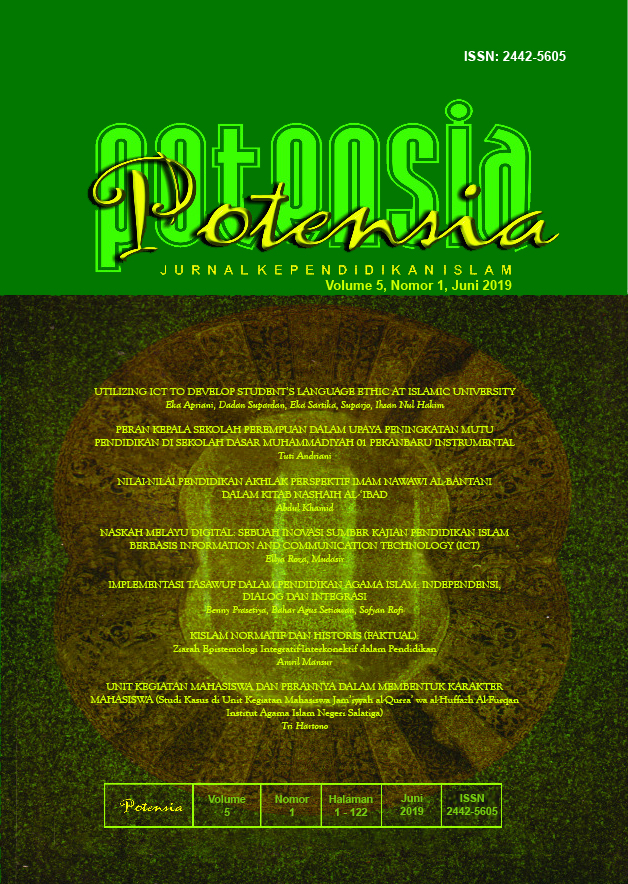UTILIZING ICT TO DEVELOP STUDENT’S LANGUAGE ETHIC AT ISLAMIC UNIVERSITY
DOI:
https://doi.org/10.24014/potensia.v5i1.6279Keywords:
ICT, Islamic university, language ethicAbstract
ICT is tools or medias that facilitate teaching and learning process in the classroom. ICT includes software application, computers, radio, television, telephony, CD ROM, audio or video clips, computer, and internet. Utilizing this technology is not improve students’ achievement but also their character, especially language ethic. Students’ language ethic has relationship to linguistics aspects. In semantics, the study tells about how polite language used to communicate with other people in the real context. In pragmatics, the study tells about how polite language used to communicate with older and younger people based on the situation. There were some words and expressions can be used and can be not used to communicate with other people. One way to teach semantics and pragmatics was used ICT in the calssroom. Using ICT that input islamic value can develop the students’ character indirectly. Hopefully, all of the English Lecturer using ICT as English Teaching Media at Islamic University.
Downloads
Published
How to Cite
Issue
Section
License
POTENSIA: Jurnal Kependidikan Islam operates an Open Access policy under a Creative Commons Attribution 4.0 International License. Authors who publish with this journal agree to the following terms:
- Authors retain copyright and grant the journal right of first publication with the work simultaneously licensed under a Creative Commons Attribution 4.0 International License that allows others to share the work with an acknowledgement of the work's authorship and initial publication in this journal.
- Authors are able to enter into separate, additional contractual arrangements for the non-exclusive distribution of the journal's published version of the work (e.g., post it to an institutional repository or publish it in a book), with an acknowledgement of its initial publication in this journal.
- Authors are permitted and encouraged to post their work online (e.g., in institutional repositories or on their website) prior to and during the submission process, as it can lead to productive exchanges, as well as earlier and greater citation of published work.

